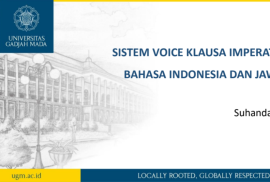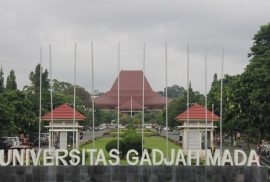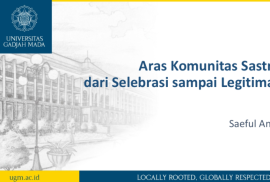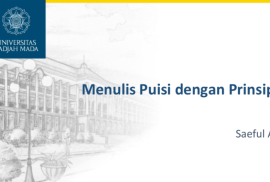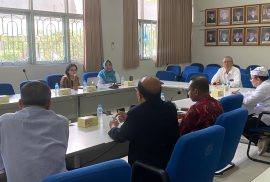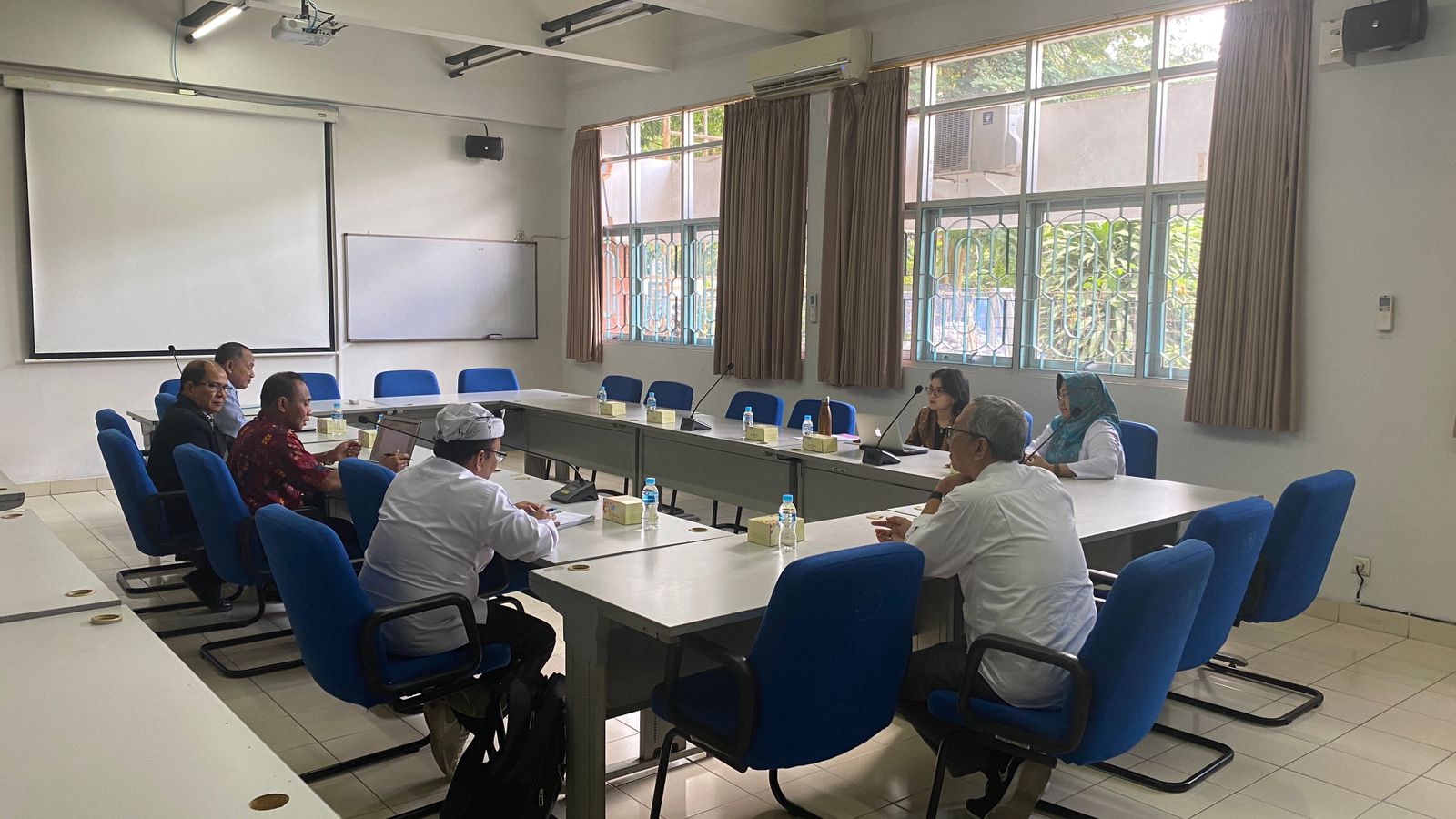Medan, 4 July 2024 – Dr. Suhandano, M.A., Head Lecturer of the Department of Language and Literature, was one of the prominent speakers at the 2nd National Virtual Seminar on Mother Language organised by the Linguistics Doctoral Study Programme of the Faculty of Cultural Sciences (FIB) of North Sumatra University (USU). The seminar, held on 4 July 2024, was attended by students, lecturers, and language researchers from various regions in Indonesia.
On the occasion, Dr Suhandano presented a talk entitled ‘Voice Systems of Indonesian and Javanese Imperative Clauses’. The talk explored the uniqueness and complexity of voice systems in Indonesian and Javanese, hoping to increase participants’ understanding of this distinctive linguistic phenomenon.
The voice system is an important aspect of linguistics, especially in Austronesian languages, involving theories of syntax, language typology, and comparative historical linguistics. Dr Suhandano emphasised that the study of the voice systems of Indonesian languages, which number around 700, offers a real picture of language diversity and contributes significantly to the understanding of Austronesian voice systems.
The event is also part of an effort to advance research and development in linguistics in Indonesia, with collaborative partners from the Linguistics Doctoral Study Programme at FIB USU. This seminar is expected to encourage further interest and research on voice systems and Austronesian linguistics in general.

